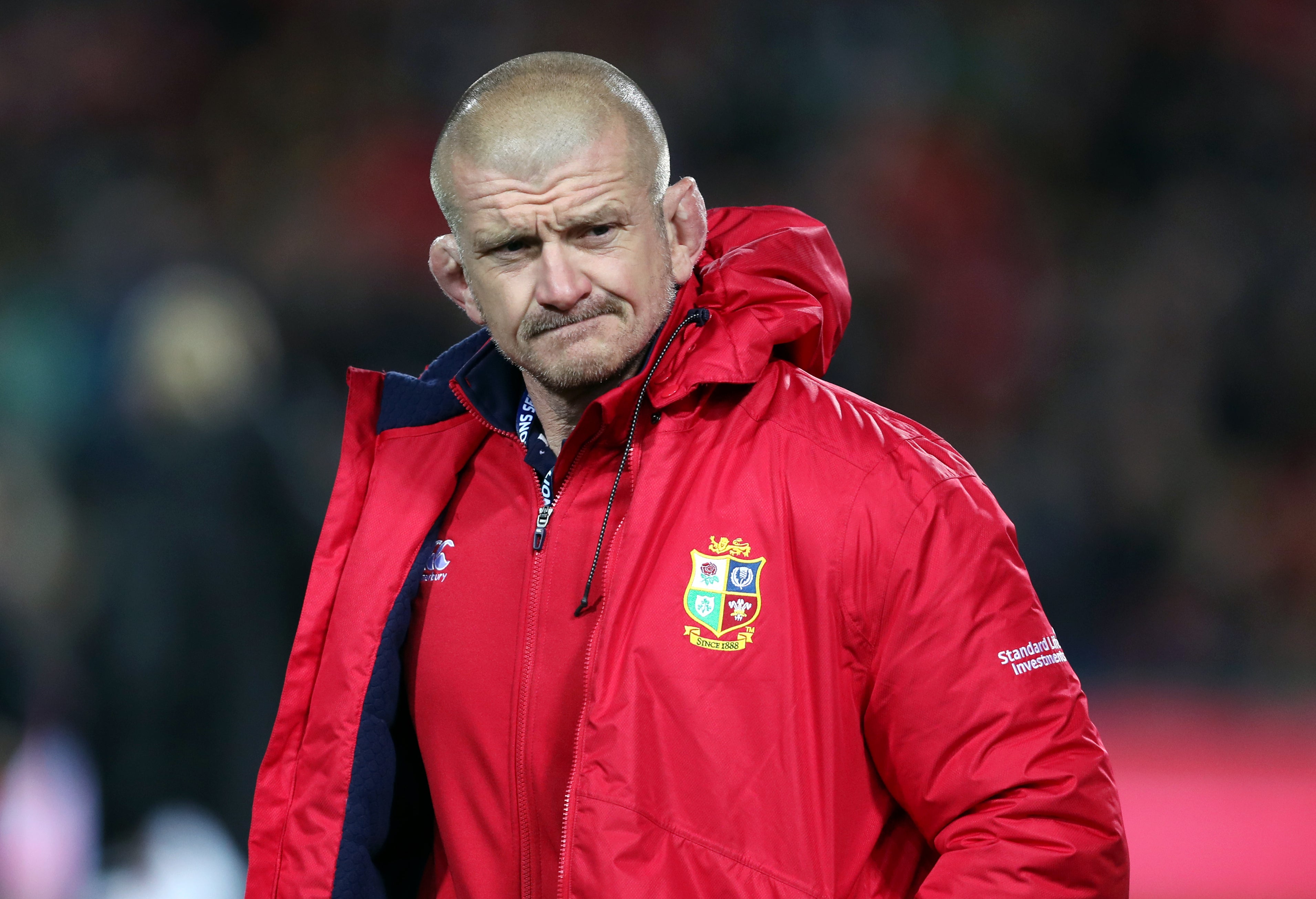
A record of just five wins from 12 games in 2024 reflects a year of missed chances for England. From Lyon in the spring to Auckland in the summer right through to three defeats in November, Steve Borthwick’s side repeatedly put themselves in winning positions this year yet, come the crunch, failed or faltered.
After a third-place finish at last year’s World Cup, the team has undergone a relatively significant regeneration. Nine new caps have made their international debuts, while other relatively inexperienced individuals like Tommy Freeman and George Furbank have been given new prominence within the set-up.
While their final-quarter collapses have undermined much of the progress made, Borthwick is confident he has the pieces in place to build a winning team. The head coach has regularly cited the youthful age profile of his squad while retaining a senior leadership group he has full faith in. He is confident that the upheaval caused by the shock departures of defence coach Felix Jones and strength and conditioning guru Aled Walters will not be repeated.
But the start of the Six Nations is highly demanding: a trip to Ireland on the opening weekend is followed by a first home clash with France since a record defeat at Twickenham in 2023. The Rugby Football Union (RFU) have set an ambitious ask of four wins from five in the spring campaign, something England have not achieved since the 2020 edition.
Here are five key questions that Borthwick must address to set England up for success.
1. Stick or twist with the defensive system?
England will have limited access to their players over the next couple of months, even though the new enhanced EPS contracts give Borthwick greater control over a group of 17 of his squad. Players are set to have a one-day alignment camp in January before assembling later in the month for a training camp in Girona ahead of the Six Nations.
Their coaches, meanwhile, will conduct a thorough debrief of both the November internationals and the year as a whole — though one of Borthwick’s staff will have to play a more limited part. Defence coach Joe El-Abd returns to Oyonnax as he continues his work as director of rugby at the French club until the end of the season. It feels far from ideal after a first campaign in which El-Abd’s tweaked system showed a few flaws.

Where the departed Jones seemed to instil total buy-in into his “blitz” system, a structure that England now refer to as “the hammer” had plenty of kinks in the recent Tests. From fringe frailties to dislocation in the outside channels, there is plenty of refinement required - or perhaps a rowing back of the high-risk, high-reward fast linespeed strategy entirely. If it is to be persisted with, England simply have to scramble better after line-breaks are made, as they were starting to under former Springboks coach Jones.
2. Does the coaching team need bolstering?
Borthwick has spoken in the past of enjoying a relatively small coaching team, but there is a possibility that additions could be made. Walters is yet to be directly replaced, with an attempt to recruit Phil Morrow from Saracens on a part-time basis blocked by the other Premiership clubs for fear of a conflict of interest. It appears that any potential Morrow arrival is likelier to come in the summer than in the next few weeks, with Borthwick talking up the “excellent” work that strength and conditioning coach Dan Tobin has been doing while also lamenting the lack of Test readiness his players had when they came into camp.

Might an added senior voice elsewhere also be beneficial? Borthwick, an exceptionally hard work, shoulders a significant load in camp, in essence also overseeing the lineout and forwards alongside his head coaching duties. Could Graham Rowntree, out of work after leaving Munster, be persuaded back into the England set-up to assist scrum coach Tom Harrison and add both a fresh voice and veteran savvy to the staff? Recruiting the former Leicester prop, or a figure of simiilar profile, is an option that should be explored — if the Rugby Football Union’s financial situation allows.
3. Is it time to look to the future in the front row?
One of the big steps forward this year for England has come at the problem position of prop. Will Stuart was quietly impressive all autumn, while a debut for Asher Opoku-Fordjour in the game against Japan was the first indication of a coming group of young props described as a “golden generation” by the Rugby Football Union (RFU). It may not be too long until Gloucester’s Afolabi Fasogbon and Bath’s Vilikesa Sela join the versatile Opoku-Fordjour in the senior squad after the trio were influential in England’s Under-20 World Championship triumph last summer.

While Fin Baxter is still clearly a work in progress, he offers a young, high-upside option at the loosehead after the retirement of Harlequins teammate Joe Marler. On the opposite side, it surely isn’t long before Dan Cole takes richly-deserved leave, though Borthwick talked up his positive influence last week.
“I want to make sure that Dan Cole can continue being an England player for a long time,” the head coach said. “I think he enjoys being part of the programme. His role with the squad throughout the last few years to help other players has been enormously valuable. But I’m looking at what the next props are. One thing that’s clear, building upon that, is athleticism. As you start looking at the players I’ve picked over this last 12 months and this next period, with this England team, is athletic players.”
4. Can England get more out of their bench?
Data from Opta ahead of the Japan game suggested that England have had the least impactful bench among top nations this year, making it an area in need of improvement ahead of 2025. There have been some mitigating factors within that: Ollie Chessum’s injury forced Chandler Cunningham-South, beginning to make real forceful involvemenets as a replacement, into a starting role he is perhaps not quite yet ready for, while the talent drain to France last year has harmed England’s pool of experienced players.

An attempt to lure Stade Francais centre Joe Marchant back to the Premiership should be made but the recent England ‘A’ game provided an intriguing view of some of those Borthwick may consider to add depth to his squad. Saracens number eight Tom Willis is a bullocking ball carrier that surely merits a longer look, while Gloucester lock Arthur Clark is tracking nicely.
5. How do England continue getting the best out of Marcus Smith?

Marcus Smith appeared to take a firm grip of the starting ten shirt for England in November, but there are a few questions that remain over his ability to imprint and excel within structure at international level. No doubt, a role must be maintained in the side for a gifted playmaker - but could he be deployed as a second distributor from full-back alongside either George Ford or Fin Smith? The sample size is small and, given the opposition, perhaps insignificant but the Smith/Smith creative axis worked really well in the final moments against Japan.
Furbank would be mightily unfortunate were he to be squeezed into a reduced role. No final decision needs to be made - flexibility in attack can be a great strength. However they get there, November showed that giving Marcus Smith as many opportunities as possible to create in space is only a good thing.







